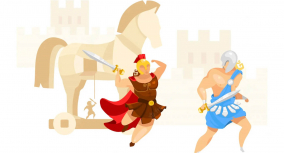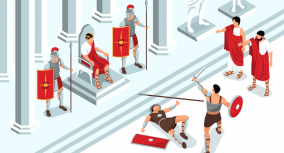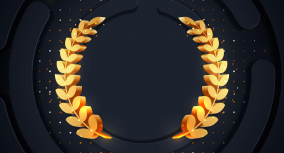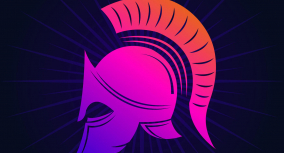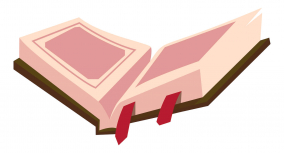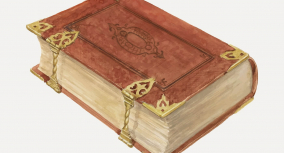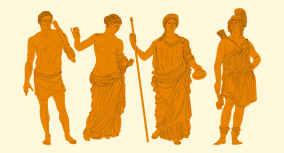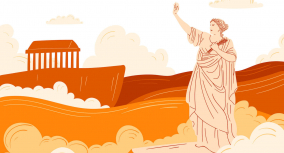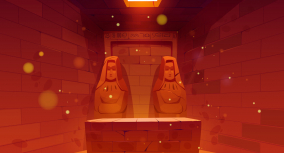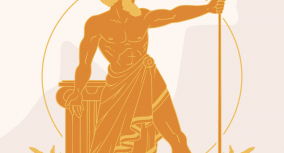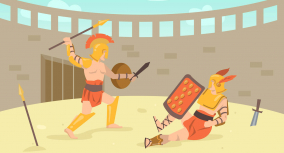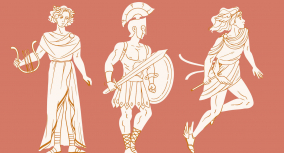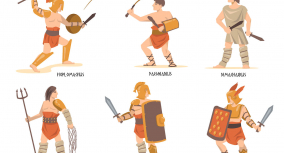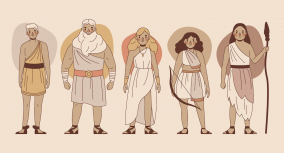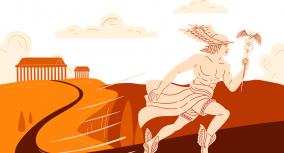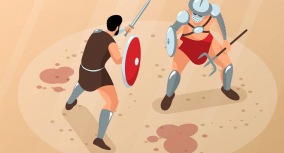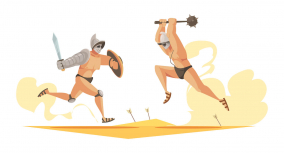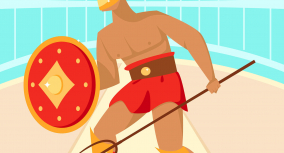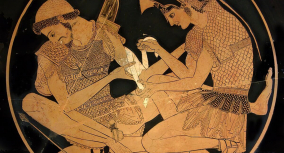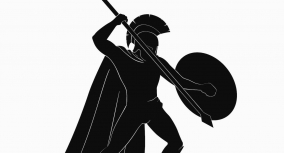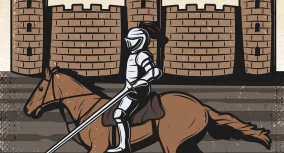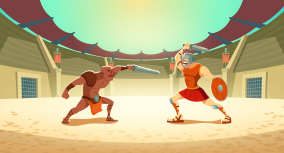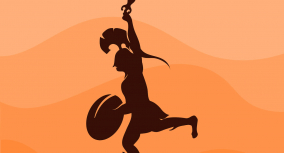Looking for The Iliad summary? Need to quickly figure out the intricacies of the epic poem’s plot? You’re in the right place! In the article prepared by our experts, you’ll find The Iliad timeline of events, plot overview, and detailed summaries of the poem’s books.
🔰 The Iliad Plot Overview
At the point of the poem’s beginning, the Trojan War between the Achaeans (the Greeks) and the Trojans lasted for nine years. Homer describes several weeks of war during which a conflict between Achilles and Agamemnon takes place. The story follows Achilles, the great Greek warrior, and the destruction caused by his rage. The gods, in their turn, pick sides and help their favorites. The finale of the war between the Achaeans and the Trojans is unclear from the reading.
📈 The Iliad Timeline of Events
In this section, you’ll find an illustrated timeline of The Iliad that contains the key events of the poem.
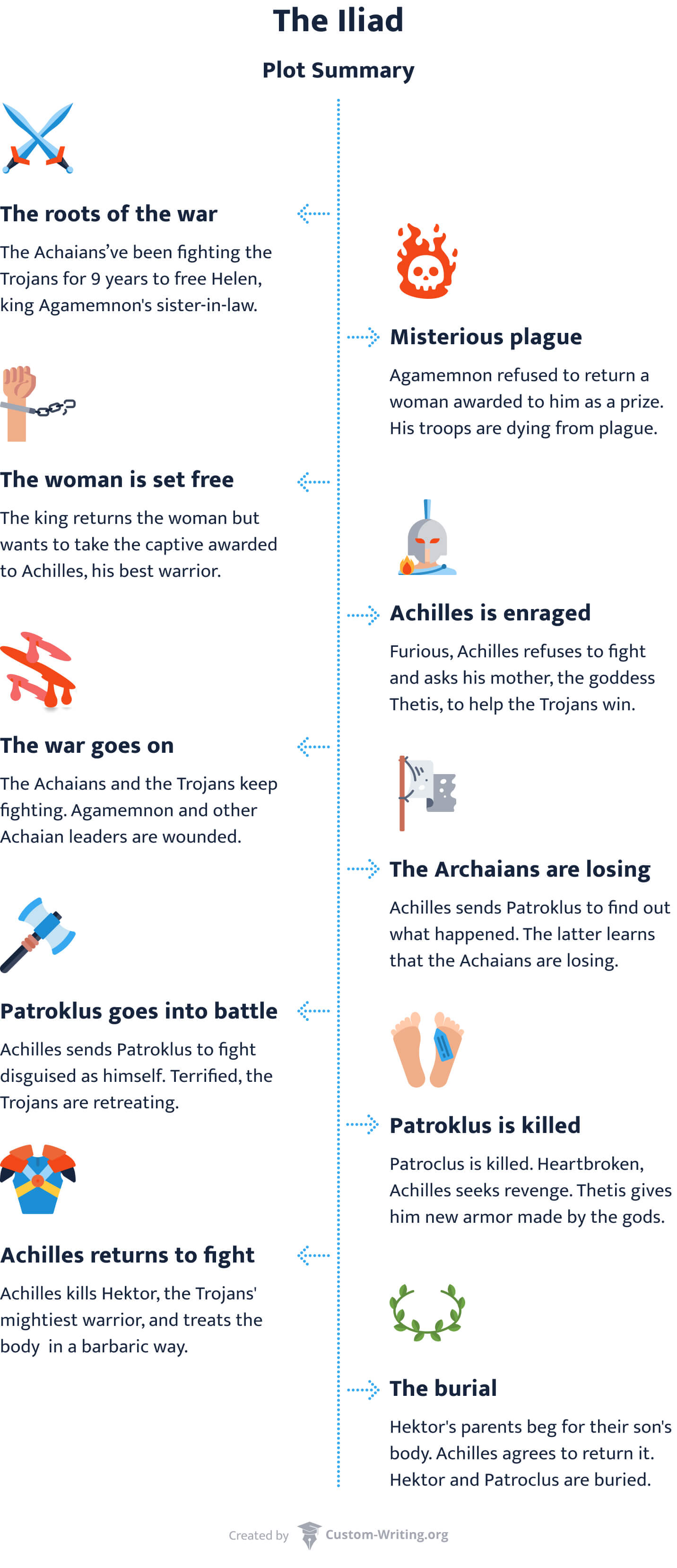
📚 The Iliad Summaries of the Books
Below you’ll find detailed summaries of The Iliad books. The quotes that you’ll find there are taken from the translation made by Samuel Butler.
The Iliad Books 1 & 2
Book 1 of the Iliad opens in the middle of things. The Trojan War between Troy and the Achaeans (Greeks) has been raging for nine years. The Achaeans start to fall ill and die. Apollo sent this disease on them upon the request of priest Chryses whose daughter, Chryseis, was captured as a spoil of war.
The god… is angry neither about vow nor hecatomb, but for his priest’s sake, whom Agamemnon has dishonoured, in that he would not free his daughter nor take a ransom for her; therefore has he sent these evils upon us, and will yet send others.
The Iliad, Thereon, Book I
After ten days of the plague, Achilles calls a meeting. He is in rage with Agamemnon because he kept Chryseis as a prize. Agamemnon is ready to set Chryseis free only if Achilles gives him Briseis, who also was a prize. After some antagonism, they do so.
Achilles refuses to fight on the side of Achaeans. He asks Thetis, who is the sea-goddess and his mother, to avenge his pride. She influences Zeus to help the Trojans. The king of the gods agrees despite his fear that Hera will be annoyed. She is jealous of Thetis and dislikes Trojans but fears Zeus above all.
As a result, Zeus sends Agamemnon a dream where he defeats Troy.
Lying Dream, go to the ships of the Achaeans, into the tent of Agamemnon, and say to him word for word as I now bid you. Tell him to get the Achaeans instantly under arms, for he shall take Troy.
The Iliad, Jove, Book II
It leads the king into a belief that all the gods are on his side. Before the mass assault, he decides to test his warriors’ loyalty. Agamemnon encourages them to sail for home. To his surprise, some of the people rush for the ships. But their reaction inspires the ones who stay. With Athena’s help, Odysseus stops the mad rush to the vessel. He convinces the people that it is more honorable to defeat Troy.
Agamemnon orders his troops to prepare for the attack. The news of the attack reaches Troy. Hector tells his army to meet the Achaeans on the plain site near Troy.
The Iliad Books 3 & 4
The armies advance. Paris (Helen’s lover) strides in the front rank of the Trojan army. He suggests settling the conflict over Helen in one-on-one combat with Menelaos (Helen’s husband). The latter accepts the challenge, but Paris hides among the Trojan troops in fear. His brother and the Troyan commander, Hector, says that Paris is more beautiful than brave. Hector hurts Paris’s pride, so the warrior agrees to fight Menelaos. Helen will stay with the one who wins.
Come hither, child, and see the strange doings of the Trojans and Achaeans… Alexandrus and Menelaus are going to fight about yourself, and you are to be the wife of him who is the victor.
The Iliad, Iris, Book III
Agamemnon and Priam offer sacrifices to the gods on behalf of both sides of the war. Thus, they solemnize the agreement. Paris and Menelaos fail to hurt each other with their spears. Menelaos breaks his sword against Paris’s helmet and tries to strangle him with his helmet strap.
Aphrodite intervenes to save her favorite warrior. She carries him to his bedroom in Troy to meet Helen. Agamemnon declares that Menelaos is the winner and demands Helen’s return to Sparta.
The gods have a controversy over the results of the combat on Olympos. Zeus thinks it is time to finish the war and send Helen back home with Menelaos. Troy is Zeus’ favorite city, and he does not want it to be destroyed.
Of all inhabited cities under the sun and stars of heaven, there was none that I so much respected as Ilius with Priam and his whole people. Equitable feasts were never wanting about my altar, nor the savour of burning fat, which is honour due to ourselves.
The Iliad, Jove, Book IV
Hera objects that she has never protested against Zeus’s destruction of her favorite cities. So, he should not interfere against the destruction of Troy. Zeus gives in and asks Athena to provoke the Trojans to break the agreement.
Athena disguises herself as a Trojan soldier and urges Pandaros to kill Menelaos and gain glory. He follows the advice and shoots an arrow at Menelaos. It does not kill him, but only wounds, but the truce is broken. While an army surgeon tries to heal Menelaos, the Trojans start to advance.
Agamemnon uses praise to boost the morale of his troops. The Achaeans eagerly respond and surge in an attack. The war resumes, and multiple people are killed on both sides.
The Iliad Books 5 & 6
The battle continues. Athena empowers Diomedes with exceptional courage and military skill. When the archer Pandaros (who wounded Menelaos) shoots Diomedes in the shoulder, he asks Athena for more aid. She renews his strength and gives him the power to see gods on the battlefield. She also warns him not to fight any of them except Aphrodite.
Fear not, Diomed, to do battle with the Trojans, for I have set in your heart the spirit of your knightly father Tydeus. Moreover, I have withdrawn the veil from your eyes, that you know gods and men apart.
The Iliad, Minerva, Book V
Diomedes kills Pandaros and crushes Aeneas’s hip with a stone. He then takes the Aeneas’s horses as a prize and raises his sword to kill Aeneas, but Aphrodite appears to protect her son. Following Athena’s directive, Diomedes wounds Aphrodite in the wrist. She flees to Olympos, and Apollo takes Aeneas away to the temple at Pergamos, heals him, and returns him to battle.
Ares, the god of war, helps Hector and his Trojan army to advance. Hera and Athena aid the Achaeans. They gain Zeus’s permission to remove Ares from the battle. Athena advises Diomedes to spear Ares. The gods leave for Olympos, and the war continues without them.
The Achaeans drive the Trojans back. Helenos (a soothsayer) advises his brother Hector to return to Troy and tell the queen to make an offering to Athena.
Agamemnon commands Menelaos to kill a Trojan charioteer, even though he begs to be ransomed. Diomedes and Glaukos meet in battle. Diomedes wonders who Glaukos is. The letter recites his lineage. The warriors discover that their forefathers once exchanged friendship gifts. To commemorate their bonds, they exchange armor, although Glaukos’s golden armor costs ten times more.
In Troy, Hector finds Paris with Helen and urges him to join the battle, reproaching his irresponsibility. Then he visits his wife, Andromache, and a little son. The woman pleads him to withdraw from the fighting. Achilles, who is the main hero of The Iliad, has killed her father and brothers, and Hector is her only close person.
It would be better for me, should I lose you, to lie dead and buried, for I shall have nothing left to comfort me when you are gone, save only sorrow.
The Iliad, Andromache, Book VI
Hector says he would die of shame if he left the battle. Hector plays with the boy, and they have some pleasurable family moments. He meets Paris at the city gate, and they return to their army.
The Iliad Books 7 & 8
The return of Hector and Paris inspires the Trojans. Athena and Apollo decide to end the battle day by a duel. Hector approaches the Achaeans’ lines and proposes to fight their strongest warrior. Many of them volunteer, and the Greeks cast lots. The majority votes for Great Ajax.
Ajax blocks Hector’s blows with his shield and is close to wound him. Finally, he strikes Hector with a big rock, and the duel ends. They exchange gifts.
Neither army wants to resume fighting the next morning. In the Achaean camp, Nestor suggests arranging a brief truce to bury the dead (and to build a wall and a trench meanwhile).
Hard by the funeral pyre we will build a barrow that shall be raised from the plain for all in common; near this let us set about building a high wall, to shelter ourselves and our ships, and let it have well-made gates that there may be a way through them for our chariots.
The Iliad, Nestor, Book VII
In Troy, Antenor, a nobleman, suggests returning Helen to end the war. Paris refuses but proposes to replace the treasure he took with her, plus some of his own wealth. Priam’s messenger brings Agamemnon’s answer: Paris’s gift is rejected, but a one-day truce can be secured.
Achaeans build the wall and the trench around their ships. Gods object to the construction. Zeus suggests washing it away as soon as the Greeks leave.
Surely when the Achaeans have gone home with their ships, you can shatter their wall and fling it into the sea; you can cover the beach with sand again, and the great wall of the Achaeans will then be utterly effaced.
The Iliad, Jove, Book VII
He also promises to punish any god who interferes with the natural course of things as he intends to finish the war.
Zeus goes to Mount Ida to weigh the armies’ fate on the scales. The Achaeans lose. Zeus sends thunder against them, and they flee in terror. The Trojans advance to the Achaean fortifications. They bring fire supplies to burn their ships.
Hera asks Poseidon for help, but neither of them wants to go against Zeus. The night ends the fight with Trojan’s fires burning around the new wall.
The Iliad Books 9 & 10
The Achaeans start to panic. Agamemnon thinks they should sail home, but Diomedes says it would mean their cowardice. He still believes in Zeus’ promise of their victory. Nestor says it’s time to ask Achilles, and so Agamemnon does.
I was blinded with passion and yielded to my worser mind; therefore I will make amends, and will give him great gifts by way of atonement.
The Iliad, Agamemnon, Book IX
He offers the hero a colossal treasure, one of his daughters, and seven cities. Three commanders deliver his words: Great Ajax, Odysseus, and Phoenix.
Achilles declines the offer.
He may offer me ten or even twenty times what he has now done, nay—not though it be all that he has in the world, both now or ever shall have… He may offer me gifts as the sands of the sea or the dust of the plain in multitude, but even so he shall not move me till I have been revenged in full for the bitter wrong he has done me.
The Iliad, Achilles, Book IX
Achilles says that his mother Thetis predicted his two possible destinies. Either he dies in the Trojan war and wins eternal glory, or he sails back home and lives happily but unremarkably to his old age. He prefers the latter. Thus, Achilles will not fight until his ships are burnt.
When the embassy returns, the news dispirits the Achaeans. Agamemnon spends a sleepless night. Nestor suggests sending a scout to find out the enemy’s plans and advantages. Diomedes volunteers and asks Odysseus to go with him. On their way to the Trojan camp, they catch Dolon, a Trojan spy. Trading his life, Dolon discloses the critical information of their troops. But after that, Diomedes kills him.
Now the two heroes know the best place to attack (the Thracian camp) and do not hesitate to kill many Trojan men. But then Apollo intervenes, waking the Thracians up. Diomedes and Odysseus return to their base and take a ritual bath in Athena’s honor.
The Iliad Books 11 & 12
The next morning, Zeus sends goddess Strife to encourage the Greeks to keep on fighting. Then he causes blood rain that throws the Achaeans into a panic. But they progress, throwing the Trojans back to their gates. But it did not last long. Soon the Trojans regain their ground.
The story shows Achilles disturbed by the latest events. But he feels that his revenge time is coming. Achilles sends Patroclus to bring the news from old Nestor.
Go, Patroclus, and ask Nestor who it is that he is bearing away wounded from the field; from his back I should say it was Machaon son of Aesculapius, but I could not see his face for the horses went by me at full speed.
The Iliad, Achilles, Book XI
After a lengthy account of the events, Nestor asks Patroclus to convince Achilles to join in. If he fails, Patroclus should put on Achilles’s armor and enter the battle himself to put heart into the Achaeans.
Meanwhile, the Trojans progress. Soon they see that their chariots will not cross the trench, so they continue their assault on foot.
An eagle with a snake in its claw flies over the Trojan army. It is a bad omen, but Hector refuses to acknowledge it.
There is one omen, and one only—that a man should fight for his country. Why are you so fearful? Though we be all of us slain at the ships of the Argives you are not likely to be killed yourself, for you are not steadfast nor courageous.
The Iliad, Hector, Book XII
After a series of attacks, the Achaean wall is broken. Hector and his army enter the fortification, and the Greeks retreat to their ships.
The famous Sarpedon’s speech from Iliad book 12 explains the warrior code of those days. However, the great warrior laments that the world is as it is. If he could choose between glory as a mighty leader and eternal life without growing old, he would choose the latter.
My good friend, if, when we were once out of this fight, we could escape old age and death thenceforward and forever, I should neither press forward myself nor bid you do so, but death in ten thousand shapes hangs ever over our heads, and no man can elude him.
The Iliad, Sarpedon, Book XII
The Iliad Books 13 & 14
Zeus diverts his attention from the war, and Poseidon uses the moment to intervene. The god of the sea disguises himself as Calchas and secretly helps the Achaeans, inspiring the two Ajaxes and the people around them.
Ajaxes, you two can be the saving of the Achaeans if you will put out all your strength and not let yourselves be daunted.
The Iliad, Neptune, Book XIII
He fears Zeus’s reaction, so he avoids openly defend the Greeks. Hector advances until Achaeans stop him.
Poseidon asks Idomeneus and Meriones (his first aid) to meet and talk. He also inspires them, and then they return to battle. Thanks to them, the Achaeans kill lots of Trojans.
Polydamas advises Hector to regroup the forces. They find out that many of their people are dead or wounded. Paris raises Hector’s spirits. Then Hector and Ajax exchange boasts. An eagle appears beside Ajax, which is a good omen for the Achaeans. At the end of the book, the troops resume the battle.
Nestor and other wounded commanders look around. They see that their losses are significant. Agamemnon proposes going home while the army is still fighting. Odysseus harshly rejects the suggestion. Diomedes advises the commanders to go to the front, not to join the battle but to inspire their troops.
Meanwhile, disguised Poseidon encourages Agamemnon. He promises that the Trojans will retreat.
On Olympus, Hera plans to distract Zeus with her immortal beauty. She gets Aphrodite’s band with the power of love. Then she visits Hypnos and bribes him to get his cooperation.
Sleep, you who lord it alike over mortals and immortals, if you ever did me a service in times past, do one for me now, and I shall be grateful to you ever after. Close Jove’s keen eyes for me in slumber while I hold him clasped in my embrace, and I will give you a beautiful golden seat, that can never fall to pieces.
The Iliad, Juno, Book XIV
Finally, Hera finds Zeus on Ida. Her beauty made him overcome with desire. They make love, and then Hypnos sends Zeus to sleep and tells Poseidon he can now fight for the Achaeans. The fight resumes. Hector strikes Great Ajax with his spear, but it does not penetrate his armor. Then Great Ajax responds, crushing Hector with a rock. Hector retreats.
Poseidon sends the tide against the Trojans, and Achaians regain their positions.
The Iliad Books 15 & 16
Trojans retreat to their chariots. Zeus wakes up and sees the change in the forces. He wants to punish Hera, but she protects her innocence. He agrees, telling her to fix everything.
Back on Olympus, Hera tries to make Ares angry with Zeus, but Athena intervenes. Still, she fulfils Zeus’s order to send Iris and Apollo to meet him on Ida. Zeus instructs Iris to hold back Poseidon, and Apollo to help Hector regain his strength. They do as Zeus commanded, and Hector returns to battle.
Apollo leads shakes Zeus’s storm shield and leads the Trojans. Achaeans retreat in terror. Apollo fills in the trench and knocks down the Greek wall. The Trojan chariots come close to the ships.
Archer Teucer kills many Trojans, but when he aims at Hector, Zeus breaks his bowstring. Ajax defends the Achaeans standing alone on a ship.
Patroclus goes to his best friend Achilles to persuade him to return to the battle. He also begs Achilles to send him back to the battlefield. Achilles agrees and gives his armor and troops to defend Patroclus. Still, Achilles does it under the condition that Patroclus will push the Trojans back from the ships but not follow them to Troy.
When one of the ships is on fire, Patroclus puts on Achilles’s armor and joins the battle. Trojans are demoralized. Patroclus kills many of them, riding in Achilles’s chariot. Then he faces Sarpedon and is close to kill him. Zeus wants to protect his son, but Hera objects. If he does do, all the other gods will start following his example.
If, however, you are fond of him and pity him, let him indeed fall by the hand of Patroclus, but as soon as the life is gone out of him, send Death and sweet Sleep to bear him off the field and take him to the broad lands of Lycia, where his brothers and his kinsmen will bury him with mound and pillar, in due honour to the dead.
The Iliad, Juno, Book XVI
Zeus watches Sarpedon die.
Zeus gives Patroclus a chance to gain fame before he dies. The god helps Patroclus to make Hector retreat from the ships back to the Troy walls. A young warrior spears Patroclus in the back, and then Hector kills him. While he is dying, Patroclus warns Hector that Achilles will revenge for him.
The Iliad Books 17 & 18
The Trojans and Achaeans fight over Patroclus’ body with gods assisting them on both sides. Menelaus kills the young warrior who caused Patroclus’ death. Apollo sends Hector to attack, and Menelaus has to retreat.
With Ajax’s help, Menelaus push Hector back before he manages to dismember the body of Patroclus. But he manages to take away Achilles’ armor and puts it on. Zeus disapproves of it. He knows that Hector will die soon and empowers him for the last time.
The son of Saturn bowed his portentous brows, and Hector fitted the armour to his body, while terrible Mars entered into him, and filled his whole body with might and valour.
The Iliad, Narrator, Book XVII
Hector and Menelaus gather their troops. Zeus protects Patroclus’s body while the battle goes back and forth and covers the battlefield with fog. Achilles’ horses mourn Patroclus and refuse to move. Hector and Aeneas try to get Achilles’ horses, but the Greeks hold them back. Finally, Great Ajax organizes his men to take away Patroclus’ body.
In Iliad book 18, Achilles has a bad feeling that Patroclus is dead. Antilochus brings the bad news.
Alas, son of noble Peleus, I bring you bad tidings, would indeed that they were untrue. Patroclus has fallen, and a fight is raging about his naked body—for Hector holds his armour.
The Iliad, Antilochus, Book XVIII
Achilles grieves. Now his only wish is to kill Hector. His mother, Thetis, promises to bring him new armor from Hephaestus. Athena empowers Achilles, and he makes loud war cries that terrify the Trojans. He promises he will not bury Patroclus until he kills Hector.
Trojans fear Achilles’ return and debate what to do. Polydamas suggests retreating that night to Troy. Hector rejects the suggestion as he is not afraid of Achilles.
Meanwhile, Hephaestus makes a new breastplate, greaves, helmet, and a wonderfully decorated shield. The unique Achilles’ shield is the symbol of war and life.
The Iliad Books 19 & 20
The next morning, Thetis brings Achilles the new armor.
My son, grieve as we may we must let this man lie, for it is by heaven’s will that he has fallen; now, therefore, accept from Vulcan this rich and goodly armour, which no man has ever yet borne upon his shoulders.
The Iliad, Thetis, Book XIX
Achilles summons his army and promises to put aside his rage to Agamemnon. Agamemnon says he will return Briseis to Achilles and give him many treasures. They are reconciled and ready to return to fight.
Odysseus says the people need food to fight. Agamemnon brings his treasures for Achilles and swears he has never touched Briseis.
I call Jove the first and mightiest of all gods to witness, I call also Earth and Sun and the Erinyes who dwell below and take vengeance on him who shall swear falsely, that I have laid no hand upon the girl Briseis, neither to take her to my bed nor otherwise, but that she has remained in my tents inviolate.
The Iliad, Agamemnon, Book XIX
Achilles rejects food while Hector is alive, but Athena brings him ambrosia and nectar, the divine food and drink.
Achilles mounts his chariot. He asks his horses to bring him back alive, unlike they did with Patroclus. Hera gives voice to one of the horses, and it replies that they will save Achilles once more. However, they cannot change his fate.
Right before the battle, Zeus calls the gods to tell them to join the fight on either side. The gods divide between the sides but are reluctant to act directly. Apollo sends Aeneas to stand against Achilles. Aeneas fails to spear Achilles, and Achilles tries to kill him. At that moment, Poseidon intervenes and sends Aeneas to the different side of the field to save him. His life is necessary to lead the remaining Trojans when Hector dies.
Hector wants to fight Achilles, but Apollo tells him to remain with his people. When Achilles kills his brother, Hector cannot hold back anymore. They fight, and Apollo saves Hector because his time to die has not come yet. Enraged, Achilles kills many Trojans instead.
Hound, this time too you have escaped death—but of a truth it came exceedingly near you… if I too have any friend among the gods I will surely make an end of you when I come across you at some other time. Now, however, I will pursue and overtake other Trojans.
The Iliad, Achilles, Book XX
The Iliad Books 21 & 22
Achilles drives the Trojans back to the river Xanthus. He takes 12 soldiers alive to sacrifice them for Patroclus’ death. Lycaon begs for mercy, but Achilles is implacable. He kills Lycaon, Asteropaeus, and so many Trojans that the river flow is stopped.
The river god gets angry and rises the bloody waves against Achilles. The hero implores the gods for help.
Father Jove, is there none of the gods who will take pity upon me, and save me from the river? I do not care what may happen to me afterwards.
The Iliad, Achilles, Book XXI
Hera asks Hephaestus to interfere. Hephaestus fights the river with his fire, so it has to give up.
These events initiate a fight between the gods. Athena goes against Ares and injures Aphrodite, who tries to help him. Poseidon wants to fight Apollo, but he declines the challenge and goes to protect Troy.
Apollo disguises himself as Agenor. He distracts Achilles so that all the Trojans have time to hide behind the Trojan walls.
Apollo reveals he has deceived Achilles. The hero runs to Troy. He finds Hector outside the gates. Priam and Hecuba ask Hector to enter the city. After some debates, Hector runs in fear. Achilles chases him not to allow him to enter the gate.
Apollo empowers Hector to save him. Zeus looks at his golden scales with the fates of Achilles and Hector. Hector’s side goes downward, predicting his death.
Meanwhile, Hector makes his fourth circle around Troy. He meets Athena disguised as his ally, Deiphobus. She convinces him to fight Achilles. In the course of the fight, Hector throws his spear at Achilles, but it bounces back from the wonderful shield. He asks Deiphobus to give him another one, but there is nobody to reply. Hector tries to attack with his sword, but Achilles kills him. Other Achaeans punch Hector with spears, and Achilles drags his corpse to the Achaean camp.
Thus was the head of Hector being dishonoured in the dust. His mother tore her hair, and flung her veil from her with a loud cry as she looked upon her son. His father made piteous moan, and throughout the city the people fell to weeping and wailing.
The Iliad, Narrator, Book XXII
Andromache faints at the sight of her dead husband.
The Iliad Books 23 & 24
Achilles and his troops mourn Patroclus. When Achilles falls asleep on the beach, Patroclus’ spirit comes to him, asking for a burial.
You sleep, Achilles, and have forgotten me; you loved me living, but now that I am dead you think for me no further. Bury me with all speed that I may pass the gates of Hades; the ghosts, vain shadows of men that can labour no more, drive me away from them.
The Iliad, Patroclus, Book XXIII
He also says that he wants their bones to be buried in the same jar when Achilles dies.
The next morning, the Achaeans prepare a funeral pyre. Achilles cuts a lock of his hair and throws it into the fire. He also sacrifices dead animals, treasures, and humans on the pyre. Achilles asks the winds to light fire under Patroclus.
The next day, Achilles gets ready for the Funeral Games. Diomedes wins the chariot race with Athena’s help. Nestor’s son, Antilochus, gets the second-place prize. Odysseus and Great Ajax wrestle. Odysseus wins in foot-racing.
There is also boxing, dueling, archery, and spear throwing. Agamemnon gets the first-place prize for spear throwing without any contest.
During the next several days, Achilles keeps dragging Hector’s body around Patroclus’ tomb. But Apollo protects the corpse from decay. Hera, Athena, and Poseidon watch that the other gods don’t steal the body to return it to the Trojans. Zeus finds a compromise: Achilles has to give away the body for a ransom that Priam will bring all alone.
Gods protect Priam on his way to the Achaean camp. When they meet, Achilles agrees to return Hector to his family. Priam kisses Achilles’ hand.
Fear, O Achilles, the wrath of heaven; think on your own father and have compassion upon me, who am the more pitiable, for I have steeled myself as no man yet has ever steeled himself before me, and have raised to my lips the hand of him who slew my son.
The Iliad, Priam, Book XXIV
Achilles is touched, and they cry together. Dinner follows the meeting. Priam returns to Troy with Hector’s corpse, and the city mourns him for seven days before burning him on the pyre.
Thank you for reading this article! You might also want to take a look at The Iliad essay topics collection. And if you need to summarize any text, try our summary-making tool. Any questions left? Check the QA section!
🔗 References
- The Project Gutenberg eBook of The Iliad, by Homer
- Iliad | Description & Facts – Encyclopedia Britannica
- The Iliad by Homer | Goodreads
- The Iliad by Homer – The Internet Classics Archive
- Guide to the classics: Homer’s Iliad – The Conversation
- Iliad – World History Encyclopedia
- The Iliad and what it can still tell us about war – The Guardian
- “The Iliad” as a Primary Source for Historians
- Homer’s “Iliad”, Its Effect and Relevance
